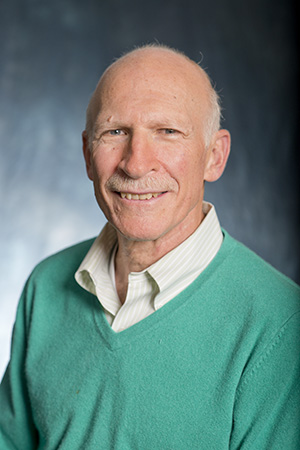Education
- Ph.D. in Civil and Environmental Engineering, Stanford University, 1978
- M.S. in Chemical Engineering, Stanford University, 1973
- B.S. in Chemical Engineering, Carnegie-Mellon University, 1972
Biography
Mark Benjamin joined the UW CEE faculty in 1977, after earning his B.S. in Chemical Engineering from Carnegie-Mellon University in 1972, his M.S. in Chemical Engineering from Stanford University in 1973, and his Ph.D. in Environmental Engineering from Stanford University in 1978. Dr. Benjamin is an expert in physical/ chemical treatment processes in general, with long-term research interests in the behavior of natural organic matter (NOM) and its removal from potable water sources, and in the development of adsorption-based processes for removal of metals, NOM, and other contaminants from solutions.
For the past 20 years, a major focus of Dr. Benjamin's work has been membrane treatment of drinking water, and in particular approaches for interfering with membrane fouling by NOM. In addition to the topics noted above, Dr. Benjamin has published research on conventional coagulation and filtration processes, diffusion dialysis, and mineral dissolution kinetics. His work has been recognized by a Fulbright fellowship and several awards for best publications in various journals, and four of his students have won awards for best doctoral thesis in environmental engineering.
In addition to his research activities, Dr. Benjamin has served on the Board of Directors of AEESP and written graduate-level textbooks on Water Chemistry (Waveland Press, 2015) and Physical-Chemical Treatment of Water (with co-author Professor Desmond Lawler of the University of Texas, Wiley, 2013). He has twice held five-year appointments to endowed Chairs, and was selected as the AEESP Distinguished Lecturer for 2009-10. He served as co-adviser for the UW chapter of Engineers Without Borders (EWB) since its inception in 2005 until 2016. Professor Benjamin retired from the CEE Department in 2016 and is currently President and CEO of MicroHAOPs, Inc., a small startup company developing improved pretreatment processes for membranes.
Research
Mark Benjamin's research focuses on understanding natural and engineered processes that alter water quality, and on developing new processes to improve water quality. In recent years, his emphasis has been on adsorption-based technologies to remove natural organic matter from water and enhance the performance of membranes
Honors and awards
- H.P. Eddy Award for best research publication in Journal Water Pollution Control Federation, 1984, 1990
- Fulbright Senior Researcher Scholarship for study and research in Costa Rica, 1985-86
- American Water Works Assoc. Publication Award for best paper published in Journal of AWWA, 1988, 1994, 1995
- Adviser to winner of Engineering Science award for outstanding Ph.D. dissertation of 1988 in environmental engineering (C.F. Lin)
- Adviser to winner of 1988 Water Pollution Control Federation 1st Place award for Master's thesis (Marc Edwards)
- American Water Works Assoc. 1989 Distribution Systems Best Publication Award
- Adviser to winner of 1992 American Water Works Assn. Academic Achievement Award and CH2M-Hill Outstanding Dissertation Award for doctoral dissertation (Marc Edwards)
- Adviser to winner of Engineering Science award for outstanding Ph.D. dissertation of 1998 in environmental engineering (C.W. Li)
- Distinguished Research Award by Alcoa Foundation, 1998
- Distinguished Lecturer for AEESP at American Water Works Assn. Annual Conference, 2002
- AEESP Distinguished Lecturer (lecture tour of 15 universities). 2009-10
- USEPA Scientific Advisory Board for Drinking Water (2010-13)
- Adviser to winner of 2013 American Water Works Assn. Academic Achievement Award, 1st place for doctoral dissertation (Zhenxiao Cai)
- 2015 AEESP Award for Outstanding Contribution to Environmental ~Engineering and Science Education (for textbook on Physical-Chemical Water Treatment Processes, co-authored with Desmond Lawler)
